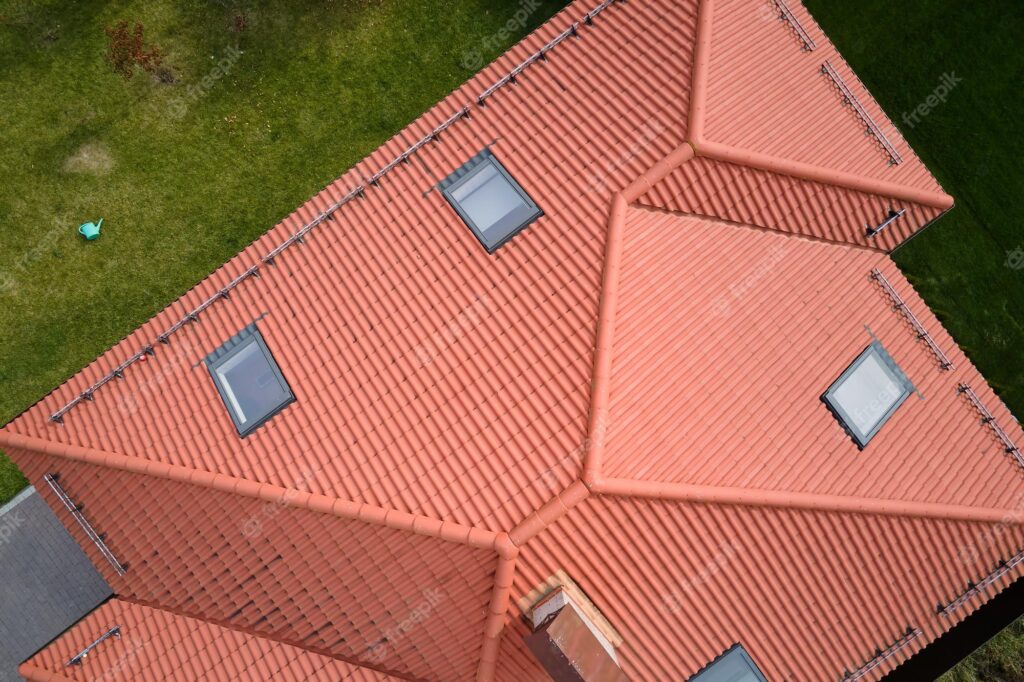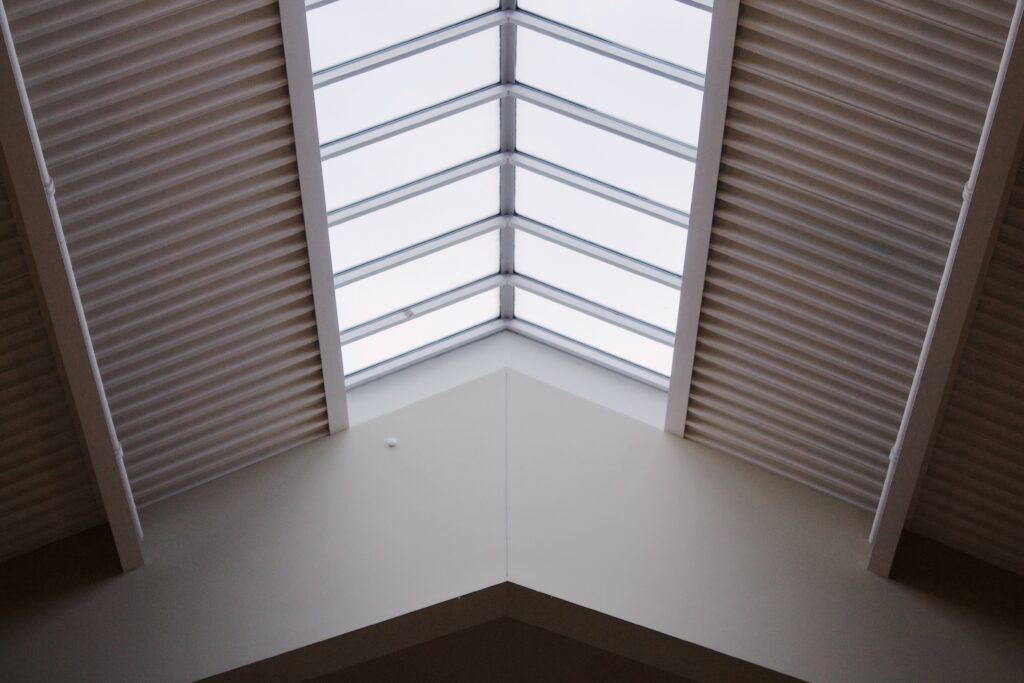Need a Pitched Roof Installed or Repaired in Montrose, CO?
We proudly serve all of Montrose County as Montrose, Colorado’s premier roofing company.
The Pros and Cons of Pitched Roofs for Commercial Buildings
The pitched roof is a classic and timeless design element found in many commercial buildings. This iconic roof style has been popular for centuries due to its ability to effectively shed rainwater and snow, as well as its aesthetically pleasing look. However, there are some pros and cons to consider when deciding whether a pitched roof is the right choice for your commercial building. On the one hand, pitched roofs provide excellent protection from the elements and are relatively easy to construct. On the other hand, they can be more expensive to install and maintain than other roofing options. In this article, we will explore the pros and cons of pitched roofs for commercial buildings so that you can make an informed decision when it comes to your roofing needs.
What Is a Pitched Roof?
A pitched roof is a roof that has two or more slopes that meet at a peak or ridge. Pitched roofs are also commonly referred to as sloped roofs and are usually built in a triangular shape. This type of roof is one of the oldest and most popular designs in architecture and is often seen in commercial buildings such as offices, shopping centers, and warehouses. Pitched roofs provide excellent protection from the elements and are relatively easy to construct.
Pros of Pitched Roofs for Commercial Buildings
The first and foremost advantage of a pitched roof is that it provides excellent protection from the elements. Pitched roofs are designed to effectively shed rainwater and snow, which helps to reduce the risk of water damage to the building. Additionally, pitched roofs are also more resistant to strong winds than flat roofs, making them a great choice for buildings in areas that are prone to strong winds.
Cons of Pitched Roofs for Commercial Buildings
The main disadvantage of a pitched roof is that it can be more expensive to install and maintain than other roofing options. Pitched roofs require more materials than flat roofs, which can increase installation costs. Additionally, pitched roofs are more difficult to repair than flat roofs, as repairs often require scaffolding or a ladder to access the roof.
Another disadvantage of pitched roofs is that they can be more susceptible to water damage. Pitched roofs are designed to shed rainwater and snow, but if they are not properly maintained or if they are exposed to too much water, they can become susceptible to leaks and other forms of water damage.
Different Types of Pitched Roofs
Pitched roofs come in a variety of styles, including gable, hip, and gambrel. Gable roofs are the most common style of pitched roof and are characterized by two slopes that meet at a peak. Hip roofs are similar to gable roofs but have four slopes that meet at a ridge. Gambrel roofs are similar to gable roofs but have two slopes that meet at a ridge.
Best Materials for Pitched Roofs
The best materials for pitched roofs are metal and asphalt shingles. Metal roofs are strong, durable, and resistant to water damage. Asphalt shingles are also a great choice for pitched roofs, as they are relatively inexpensive and easy to install.
Factors to Consider When Choosing a Pitched Roof
When choosing a pitched roof for your commercial building, there are a few factors to consider. The first is the type of roof you want. Do you want a gable, hip, or gambrel roof? The second is the material you want to use. Do you want metal or asphalt shingles? The third is the size and shape of the roof. Will the roof be symmetrical or asymmetrical? Finally, consider the cost of installation and maintenance.
Tips for Maintaining a Pitched Roof
Maintaining a pitched roof is relatively easy, but there are a few steps you can take to ensure that your roof stays in good condition. First, check your roof regularly for any signs of damage, such as loose shingles or leaks. Second, clear away any debris that may have accumulated on your roof, such as leaves or branches. Finally, make sure to inspect and repair any damage as soon as possible to prevent further damage.
Cost of Installing a Pitched Roof
The cost of installing a pitched roof will depend on the type of roof you choose, the material you use, and the size and shape of the roof. Generally speaking, metal roofs are more expensive than asphalt shingles, and symmetrical roofs are more expensive than asymmetrical roofs. Additionally, the cost of installation will also depend on the complexity of the roof, with more complex roofs requiring more labor and materials.
Conclusion
Pitched roofs are a classic and timeless roofing option for commercial buildings. They provide excellent protection from the elements, are relatively easy to construct, and can be made in a variety of styles and materials. However, they can be more expensive to install and maintain than other roofing options. When deciding whether a pitched roof is the right choice for your commercial building, consider the pros and cons discussed in this article and weigh them against your budget and roofing needs.
Get A Free Quote:


